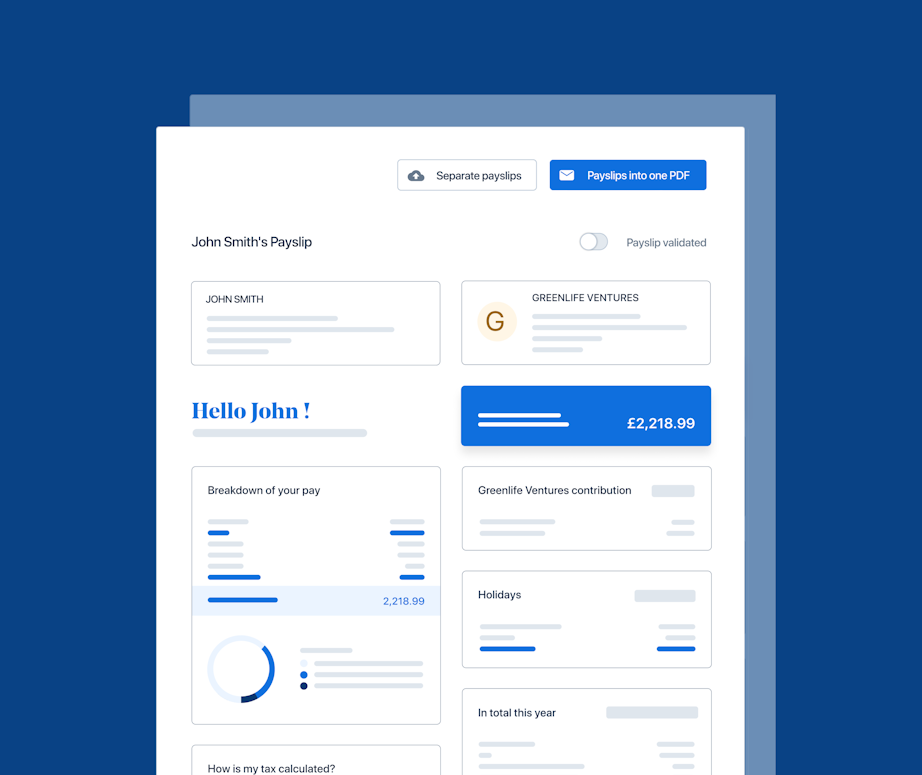Mastering Expense Management in the UK: A Comprehensive Guide

Expense management shouldn’t be complicated. But for Finance departments across the UK, it can be a hassle: a laborious, time-draining and repetitive process that can drag your team down.
Nevertheless, controlling employee spending is a critical task. In an age where efficiency is golden, solid budget control is the cornerstone of any company looking to boost its financial health and bottom line. That goes for small businesses and large enterprises across the board. And let’s not forget compliance with UK tax laws.
Let’s take a closer look at expenses management and the process revamps that can make it easier by blending together technology (like PayFit!) and best practices.
But, first things first…
What is Expense Management?
It's the processes businesses use to track, approve, and process employee-generated expenses. Think things like travel and accommodation expenses or purchases like office supplies and client entertainment.
At its core, controlling employee spending is all about having the right strategy. At a minimum, you’ll want to keep tabs on the ebb and flow of your company’s operating costs (and how employee expenses relate to these). You’ll also want to conduct consistent analysis of how these expenses change over given time periods and business cycles. Finally, none of this really works without a water-tight paper trail. In other words, you’ll need to collect all receipts, invoices, and supporting documents as evidence of spending.
If you’re doing these three things well, you’re off to a good start with your expense management. On top of this, you’ll want to ensure all expenditures are legitimate, appropriate, and aligned with your company policies so you can avoid fraud and overspending.
Why is Expense Management Critical for UK Businesses?
Managing expenses efficiently is crucial for several reasons. For one, it ensures you stay on the right side of the law. We’re talking about things like regulatory compliance - for UK businesses, in particular, sticking to HMRC guidelines - for instance, around what is allowable & disallowable as an expense - is a key component of effective cost management.
Controlling spending also improves cashflow, the bloodlife of your business, while providing insights into spending patterns and habits. It can also help you plan better for the future, through budgeting and financial planning.
How Can Businesses Improve Expense Management? Here are five ways
Done drowning in invoices and chasing employees for ‘that one rogue lunch receipt’? Then you might want to start applying the following practices.
Put a (spending) plan together
Remember the saying ‘when you fail to plan you plan to fail’?
The same can be said for company spending. This is an especially easy trap for newer and smaller companies to fall into where spending amounts might be low. But the second your company starts to grow or scale, this changes.
Without any indication of what they can spend on and how much they’re allowed to splurge, employees will go wild. But you can lay down some proper guidance with a well-written expense policy. Your expense policy should be clear, simple, and easy for everyone to follow (not just the CFO) but also flexible in case things change. It should also include what can and cannot be claimed and budgetary allowances for each spending category.
Our guide to creating a company expense policy can help you put one of these together.
Get good with budgeting
We’ve all probably put together a personal budget at some point in our lives. But budgets aren’t just great for household expenses; they can help with controlling employee spending, too.
Setting a maximum budget for each expense category at your company can do wonders for employee spending. This way, you can stipulate in advance how much can be spent on business travel, special team lunches, home office equipment and hotel stays (e.g. no more raiding the minibar). You can even set a budget per employee that managers can keep tabs on.
Put a clear submission process in place
Once you’ve done putting a policy and spending limits together, you’ll want to move on to processes. Now, the beauty of expense management is that a lot of it can be done by teams and employees themselves. And, in fact, the more you empower your workforce to own these processes, the more efficient they become.
Of course, in order for this to work you’ll need clear and easy-to-follow procedures in place. This is where an expense management system comes in handy for UK businesses. These systems automate the submission, approval, and reimbursement of expenses, reducing paperwork and minimising errors. You can build one yourself, of course, but the much easier route is to invest in expense management software; there are many out there designed with small businesses in mind.
Get ‘digital’ with invoices and receipts
Let’s face it: employees are only human, after all. Now and again they’re bound to lose track of a receipt for something they’ve paid for. But this occasional forgetfulness creates a lot of headaches for finance and accounting teams.
This is where expense management systems or software can be a real boon. The best kind makes it easy for employees to upload receipts as a photo taken or scanned on their phone or as a digital document.

Invest in expense management software (that plugs into your payroll)
We’ve been saying it all along, and we'll say it again: expense management software can greatly simplify employee spending.
You can, of course, look to partner with an expense management company. But we don’t really recommend this as technology can do a lot of this work itself. Plus, things go much smoother when you own these processes internally.
Now, selecting the right software in the UK involves evaluating solutions based on a few factors: features, scalability, user-friendliness, and integration capabilities, to name a few. But the best expense management solutions streamline processes and offer real-time visibility into expenses.
Better yet, is the software that can work directly with other business functions, like payroll. In fact, if you can get payroll and expense management software all rolled into one, now that’s the stuff of dreams.
Keep tabs on employee spending with PayFit
The adoption of expense management software can be a real game-changer for UK businesses. These platforms offer a range of functionality, including mobile receipt capture, automated policy enforcement, and integrations with accounting software, making expense reporting and reimbursement faster and more accurate than ever before.
At PayFit, we offer an innovative employee expense management solution, designed to streamline the expense reporting and reimbursement process for UK businesses.
Our platform simplifies employee expense management, integrating seamlessly with payroll to ensure accurate and timely expense recordings. By automating the expense management process, PayFit helps businesses save time, reduce errors, and maintain compliance with UK tax regulations. Learn more about how PayFit can transform your employee expense management.
With PayFit, companies can easily manage expenses, automate approvals, and integrate expenses with payroll, ensuring a seamless process from submission to reimbursement. Our solution is particularly beneficial for small to medium-sized businesses looking to optimise their company spending without the need for extensive IT infrastructure.
Effective expense management is an essential one for UK businesses that want to stay financially fit and compliant with tax laws. By adopting the right expense management solutions and leveraging technology, companies can get greater efficiency, transparency, and control over their expenses.
But it’s more than just tracking receipts; it’s about creating a culture of accountability, transparency, and strategic spending that propels your business forward. With the right tools and practices in place, UK businesses can transform their expense management processes, unlocking new opportunities for growth and profitability.
How To Work Out Hourly Rates In The UK - An Employers' Guide
Recruitment Process Guide - Stages, Selection, Automation
Employee Contracts - A Guide For UK Businesses
Part Time Workers' Holiday Entitlement - Guide & Calculator








